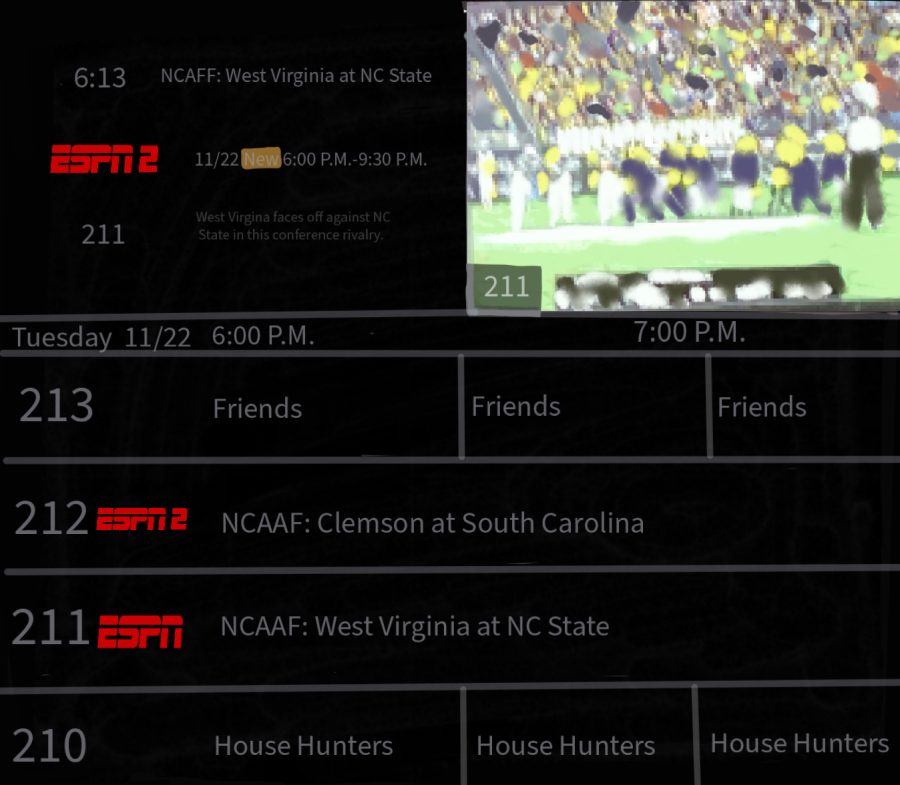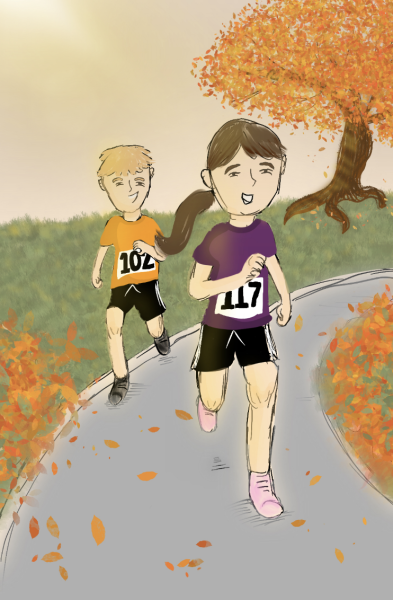College football: a student’s arch-nemesis
Have you ever been flipping through the channels on a Wednesday night and stumbled upon a college football game? You might have thought it was a rerun from a game the previous Saturday, but were confused when you realized it was live. You may have asked yourself, “Why are these college kids playing football late at night when they have school tomorrow?”
According to the Merriam-Webster dictionary, college is “an institution offering instruction usually in a professional, vocational, or technical field.” These fields can include sports, but always require academic development. College athletes work to balance academic requirements—such as gen-eds and exams—with their demanding college sport schedules. College football players are no exception to this.
When the question arises as to whether college football is taking the student out of student-athlete, a popular argument is made by fans and commentators alike that college football is considered as an audition or preparation for an eventual professional football career. The problem with this reasoning is in the stats. According to the NCAA, fewer than two percent of college athletes become professional athletes, and only 1.6 percent of college football players join the NFL. This means that over 99 percent of these football players have to find careers outside of football following their college graduation. This is why attending class and succeeding in school can be so pivotal for many student athletes in college.
It is important to note that the colleges that play the Tuesday, Wednesday, and Thursday night football games are from smaller conferences of Division I NCAA football or belong to Division II or III football teams. Larger institutions such as the University of Michigan or the University of Iowa almost always play on Saturdays and very rarely on Fridays. But this knowledge only furthers the argument to host less weekday football games. Students from smaller schools may be playing to transfer to bigger football schools, but the odds show they are even less likely to have a professional football career. This means that students from the teams that are missing school to play on Tuesday, Wednesday, and Thursday nights are even more dependent on their academic accomplishments at their respective colleges.
A large element of college football that people often don’t consider is travel. Depending on the team, the average college football schedule has half of their games away and the other half at home. These away games are usually within the conference, but some can be out of conference, which means more travel time. Most athletes work with counselors to construct their academic schedules around their athletic practices and matches, but NCAA scheduling can change. Athletes can end up missing a day or more of classes for games or having to take late night classes the day before games to adjust to their demanding schedules.
The travel might affect some player’s performance in a game, but it can also affect their grades. The NCAA themselves and some colleges have systems in place to help student athletes maintain their grades. The NCAA has a GPA minimum that students must meet to join Division I and II sports based on the NCAA-approved core courses at schools. For Division I, athletes must have at least a 2.3 GPA to play college sports, and Division II and III athletes must maintain a 2.2 GPA to participate in their sport.
Similar to college athletes, high school athletes may struggle in their classes during their sport’s season. They may rush to do homework or study for a test on an hour-long bus ride home from an away game. The Saint Viator Athletics Department works hard to build schedules for athletes that have an equal amount of home and away games. But this can be difficult, and some sports play the majority of their games during the week.
“One benefit of our Block Schedule, except for the occasional Lion Day, is that most assignments are not due the following day,” says Dean Vincent Nardiello when speaking about how Saint Viator works to support student athletes. “So if you are organized and plan out your days or week ahead of time, you can at least limit the homework you may have before or after a competition.”
High school athletes can also find it difficult to manage academics on the day of a game. They may struggle with distractions or neglect learning in anticipation for a big game.
“It can be really difficult to focus on game day,” says senior John Kaiser. “It is the most stressful to have a test on a game day because I feel like I have to study the school stuff and the football stuff and sometimes it’s too much.”
Whether a college football player managing a demanding schedule or a high school athlete with a weekday game, the mental health and organization of the athlete matter.
“Knowing yourself can help you be the best student athlete you can be,” said Dean Nardiello. “Knowing when you need to step back and decompress or when you need to push through is instrumental in finding success as a student athlete.”
Although scheduling conflicts will always arise, colleges and high schools alike need to put the academic commitments of their athletes first.
Your donation will support the student journalists of Saint Viator High School. Your contribution will allow us to purchase equipment and cover our annual website hosting costs.








